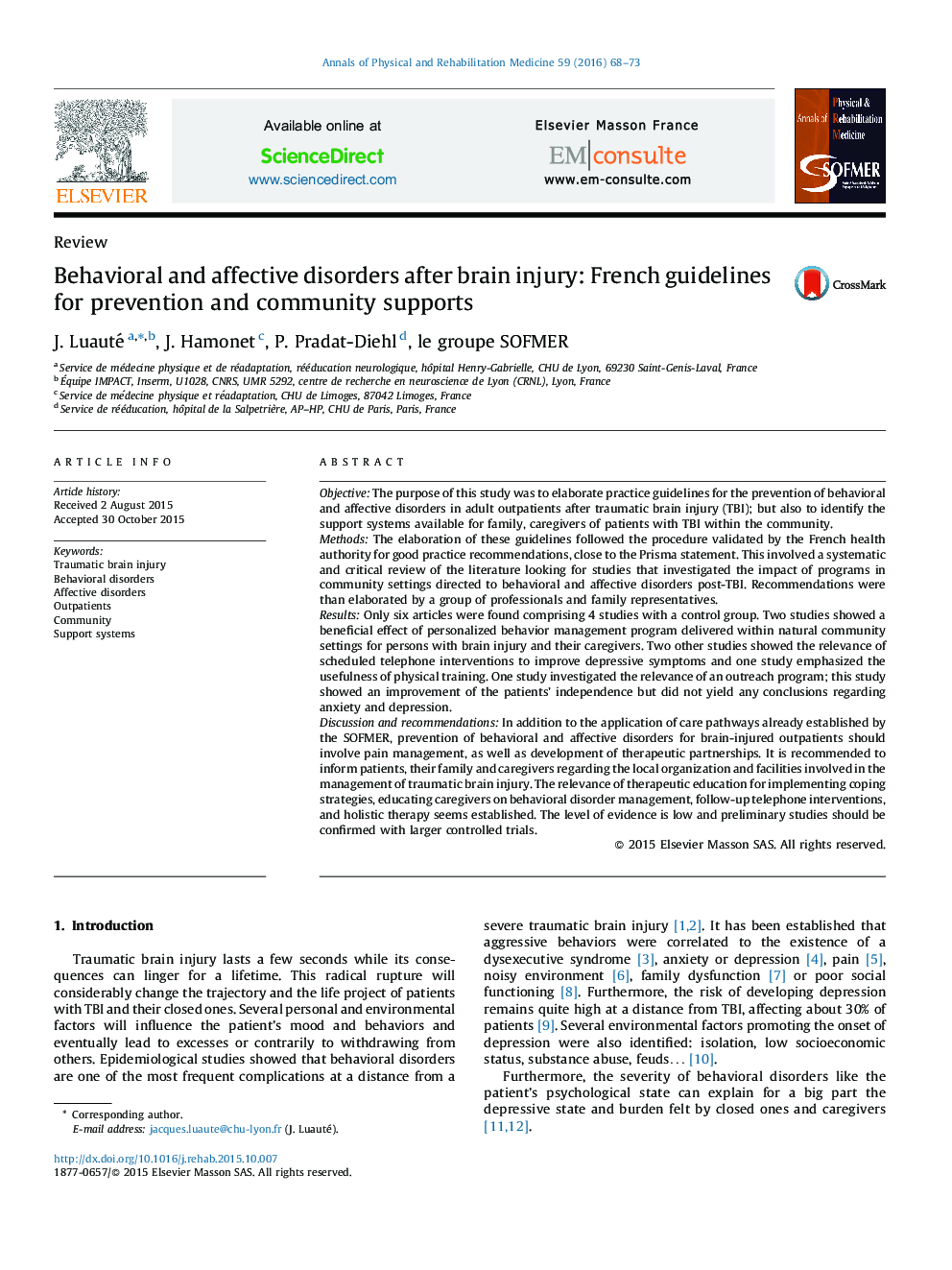| کد مقاله | کد نشریه | سال انتشار | مقاله انگلیسی | نسخه تمام متن |
|---|---|---|---|---|
| 4040484 | 1603295 | 2016 | 6 صفحه PDF | دانلود رایگان |
ObjectiveThe purpose of this study was to elaborate practice guidelines for the prevention of behavioral and affective disorders in adult outpatients after traumatic brain injury (TBI); but also to identify the support systems available for family, caregivers of patients with TBI within the community.MethodsThe elaboration of these guidelines followed the procedure validated by the French health authority for good practice recommendations, close to the Prisma statement. This involved a systematic and critical review of the literature looking for studies that investigated the impact of programs in community settings directed to behavioral and affective disorders post-TBI. Recommendations were than elaborated by a group of professionals and family representatives.ResultsOnly six articles were found comprising 4 studies with a control group. Two studies showed a beneficial effect of personalized behavior management program delivered within natural community settings for persons with brain injury and their caregivers. Two other studies showed the relevance of scheduled telephone interventions to improve depressive symptoms and one study emphasized the usefulness of physical training. One study investigated the relevance of an outreach program; this study showed an improvement of the patients’ independence but did not yield any conclusions regarding anxiety and depression.Discussion and recommendationsIn addition to the application of care pathways already established by the SOFMER, prevention of behavioral and affective disorders for brain-injured outpatients should involve pain management, as well as development of therapeutic partnerships. It is recommended to inform patients, their family and caregivers regarding the local organization and facilities involved in the management of traumatic brain injury. The relevance of therapeutic education for implementing coping strategies, educating caregivers on behavioral disorder management, follow-up telephone interventions, and holistic therapy seems established. The level of evidence is low and preliminary studies should be confirmed with larger controlled trials.
Journal: Annals of Physical and Rehabilitation Medicine - Volume 59, Issue 1, February 2016, Pages 68–73
